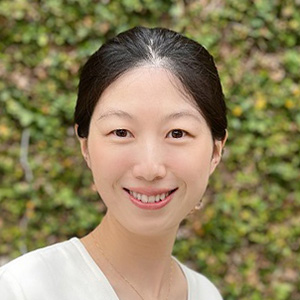 Qi Qian, University of California, Los Angeles
Qi Qian, University of California, Los Angeles
For pioneering research in developing and understanding van der Waals heterostructures and superlattices.
Bondless Boundary: Quantum transport through van der Waals heterostructures and superlattices
Quantum materials, having a rich variety of quantum states and phases, are primary workhorse in the emerging second quantum evolution. In this talk, I will focus on the development and investigation of high-quality van der Waals (vdW) heterojunctions
and superlattices, and the exploration of the unique quantum transport properties of these novel material platforms. Despite considerable potential of many delicate material systems, the fundamental understanding of their charge transport properties
is generally lagging behind, largely due to the difficulties of finding a stable material platform, the complicated fabrication process, and forming good electrical contacts to these materials. To this end, I will show several unique methods using
vdW integration approach, where atomically flat interfaces can be achieved between various systems through vdW interaction, and can be extended to multiple layers forming high-order superlattice structures, providing variable systems for quantum transport
investigations. Inspired by these findings, I will also show the exciting opportunities of vdW integration for creating new artificial quantum solids with designable chemical compositions, dimensionality, interlayer distances and structure motifs,
which opens up brand new platforms for both the fundamental studies and quantum technologies.
Qi Qian is currently a postdoctoral research scholar at UCLA in the Department of Chemistry and Biochemistry with Professor Xiangfeng Duan. She received her PhD degree in condensed matter physics from Purdue University in 2018 with Professor Michael Manfra.
Her research interest includes quantum materials engineering, nanoscale devices development and emergent low temperature quantum transport properties. Her research works are published in top peer-reviewed journals and conference’s, including
Nature, Nature Materials, Nature Nanotechnology, Nature Communications, Advanced Materials and Physical Review B. She has received 2018 The Lark-Horovitz Prize in Physics at Purdue University, 2018 Lijuan Wang Memorial Award at Purdue University and
the nomination of 2022 Chancellor’s Award for Postdoctoral Research at UCLA.